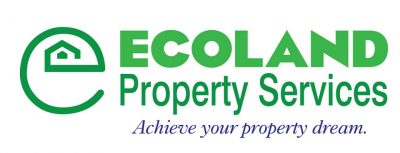Facts About Uganda from a Real Estate Perspective
Uganda, often referred to as the “Pearl of Africa,” is a landlocked country in East Africa known for its favorable climate, fertile soils, diverse ecosystems, and a youthful population. With a fast-growing population, improving infrastructure, and an increasingly urbanized society, Uganda presents notable opportunities and unique considerations for real estate investors and property developers. Below are key summarized facts and figures that offer a broad understanding of Uganda’s profile — with an emphasis on its real estate implications.
Geographic and Demographic Overview
-
Capital City: Kampala, population of approximately 5 million people. It is the country’s commercial, political, and real estate hub.
-
Total Area: 236,040 sq. km, offering abundant land resources.
-
Land Area: 199,710 sq. km
-
Water Bodies: 36,330 sq. km, including major lakes and rivers, which attract waterfront property developments and eco-tourism investments.
-
-
Population: Estimated at 36 million people (current projections), with a high growth rate of 3.57% annually.
-
Birth Rate: 48.12 births per 1,000 people, signaling continued demand for housing, schools, and health facilities.
-
Urbanization: Rapid urban migration is increasing land demand in and around major cities like Kampala, Entebbe, Mbarara, Jinja, and Gulu.
Socioeconomic Indicators Relevant to Real Estate
-
Average Family Income: Around $200 per annum, although this figure is skewed by rural poverty. In urban areas, income is significantly higher, influencing rental yields and land values.
-
GDP (Nominal, 2006/2007): $10.8 billion. Uganda’s economy is largely agriculture-based, but real estate, construction, and service sectors are rising fast.
-
Inflation Rate (2006/2007): 7.6%, indicating moderate inflation that affects building material costs and construction budgets.
Political and Administrative Framework
-
Government: Republic
-
President: Yoweri Kaguta Museveni (in office since 1986)
-
Political System: Multiparty democracy
-
Ruling Party: National Resistance Movement (NRM)
-
Administrative System: Decentralization, with local governments playing a key role in land allocation, physical planning, and local tax collection.
Decentralization means investors must often engage with district land boards, area land committees, and local councils when acquiring or developing land, especially outside Kampala.
Language and Cultural Landscape
-
Languages: English is the official language. Others include Luganda, Swahili, Nilotic languages, Bantu dialects, and limited use of French, Hindi, and German. English facilitates easier business and real estate negotiations with international investors.
-
Religions:
-
Roman Catholics: 33%
-
Protestants: 33%
-
Muslims: 16%
-
Others (Hinduism, Pentecostal, traditional): 17%
Religious and cultural diversity influences residential preferences, types of developments, and locations for religious and cultural facilities.
-
Currency and Financial Institutions
-
Currency: Ugandan Shilling (UGX)
-
Coins: 50, 100, 200, 500 shillings
-
Notes: 1,000, 5,000, 10,000, 20,000, 50,000 shillings
-
-
Forex and Banking: Over 20 commercial banks, plus microfinance institutions and forex bureaus.
-
US Dollar, British Pound, Euro, and Kenyan Shillings are commonly exchanged.
-
Bank of Uganda controls monetary policy and shilling valuation.
-
For real estate transactions, it’s common to quote property prices in UGX or USD, especially for high-value urban properties. Foreign investors are advised to use reputable banks or money transfer services for secure land payments and title transactions.
Industrial and Investment Landscape
-
Key Industries: Brewing, Sugar, Coffee and Tea processing, Cotton and Textiles, Cement, Fish processing, Plastics, Soap and Cosmetics, Tobacco, Pharmaceuticals, Construction materials, and Housing.
-
The ongoing development of industrial parks, oil and gas exploration, and infrastructure projects (like roads and airports) is boosting land value and creating new property hotspots.
Real estate investors are advised to target areas near:
-
Industrial zones (e.g., Namanve Industrial Park)
-
Major road networks and highways
-
Tourism corridors (e.g., near national parks, lakes, and rivers)
-
Upcoming oil exploration areas in Western Uganda
Independence and Legal Framework
-
Independence Date: 9th October 1962
-
Land laws are governed under the 1995 Constitution and The Land Act, 1998, which recognizes four land tenure systems:
-
Customary
-
Freehold
-
Mailo
-
Leasehold
-
Understanding the land tenure system is crucial before acquiring land for real estate development. Investors are encouraged to conduct thorough due diligence, including title verification and land use zoning consultations.
Why Uganda is an Attractive Real Estate Market
-
Youthful Population, over 70% under age 35, driving future housing demand.
-
Urban Growth, especially in Greater Kampala, boosting demand for residential and commercial property.
-
Improved Infrastructure, roads, airports, and ICT services expanding investment corridors.
-
Government Support, policies encouraging private investment in housing, manufacturing, and tourism.
-
Affordable Land, compared to neighboring Kenya and Rwanda, making Uganda attractive for budget-conscious developers.
-
Diaspora Engagement, growing interest from Ugandans abroad investing in apartments, rentals, and farmland.
Uganda presents a compelling destination for real estate investment in East Africa. From the capital city of Kampala to rural districts and lakeside towns, opportunities abound in residential housing, commercial buildings, industrial parks, and tourism properties. However, success in the real estate sector requires a solid understanding of Uganda’s demographics, land laws, administrative procedures, and market dynamics.
Foreign and local investors alike must take a calculated approach, partner with knowledgeable real estate agents or lawyers, and engage with the decentralized land governance structures to ensure smooth transactions and long-term returns.
